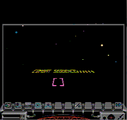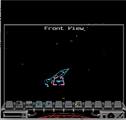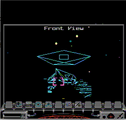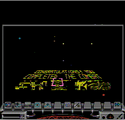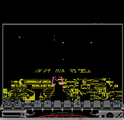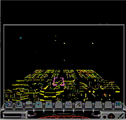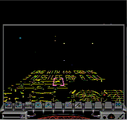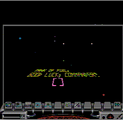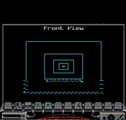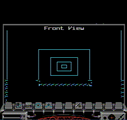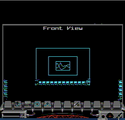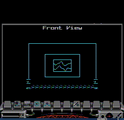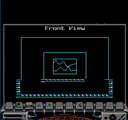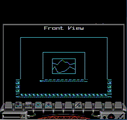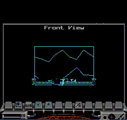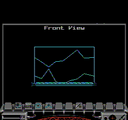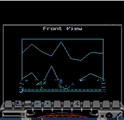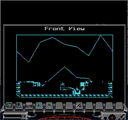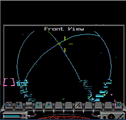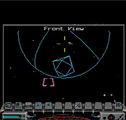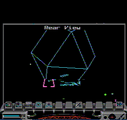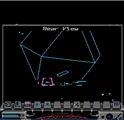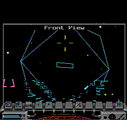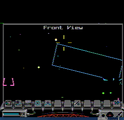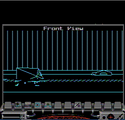Difference between revisions of "NES Elite"
m |
m |
||
| Line 34: | Line 34: | ||
A docking computer is already supplied with the ship, as a game-skip feature. After docking, a transit through |
A docking computer is already supplied with the ship, as a game-skip feature. After docking, a transit through |
||
the force-field and down the rectangular tube occurs. |
the force-field and down the rectangular tube occurs. |
||
| − | Finishing with a brief glimpse of other craft in the docking bay, similar |
+ | Finishing with a brief glimpse of other craft in the docking bay, [[Docking|similar]] |
| − | to the original BBC |
+ | to the original BBC disk version. |
<gallery caption="Docking at Space Station" widths="200px" perrow="8"> |
<gallery caption="Docking at Space Station" widths="200px" perrow="8"> |
||
Revision as of 18:02, 1 October 2008
The last version of 8-bit Classic Elite by Bell and Braben was for the NES (Famicon) system. A description of this, and other early versions of Elite can be found on Ian Bell's website NES-Elite.
A number of noticeable changes have occurred by this later version compared to the original BBC Model B disk version.
First, a new player has to complete a 'mini-mission' of combat in a simulator before starting the classic game. After Star-Wars-style writing has scrolled by (which can be sped up, omitted, by pressing the fire button), three craft fly over-head (Sidewinder, Krait and Mamba). The player has no witchspace fuel, the planet Lave and its sun are rendered in the distance. The time taken for the player to destroy the three craft is reported, and then the classic game starts with Jameson being awarded his own Cobra Mk. III ship, 3 missiles and 100 Credits. If a 'game over' occurs before the commander's position is saved, then the player is returned to the initial simulator mission.
- Combat simulation
Next, the launch sequence has been enhanced. The ship is accelerated down a long rectangular tube with an electrified force-field at the end, indicating the barrier to outer space.
- Ship Launch
A docking computer is already supplied with the ship, as a game-skip feature. After docking, a transit through the force-field and down the rectangular tube occurs. Finishing with a brief glimpse of other craft in the docking bay, similar to the original BBC disk version.
- Docking at Space Station
The snapshots here are from the undistributed NTSC version, emulated by Nestopia. (Part of the screen is corrupted in this emulation due to a mismatch, offset, in the graphic layers.)
